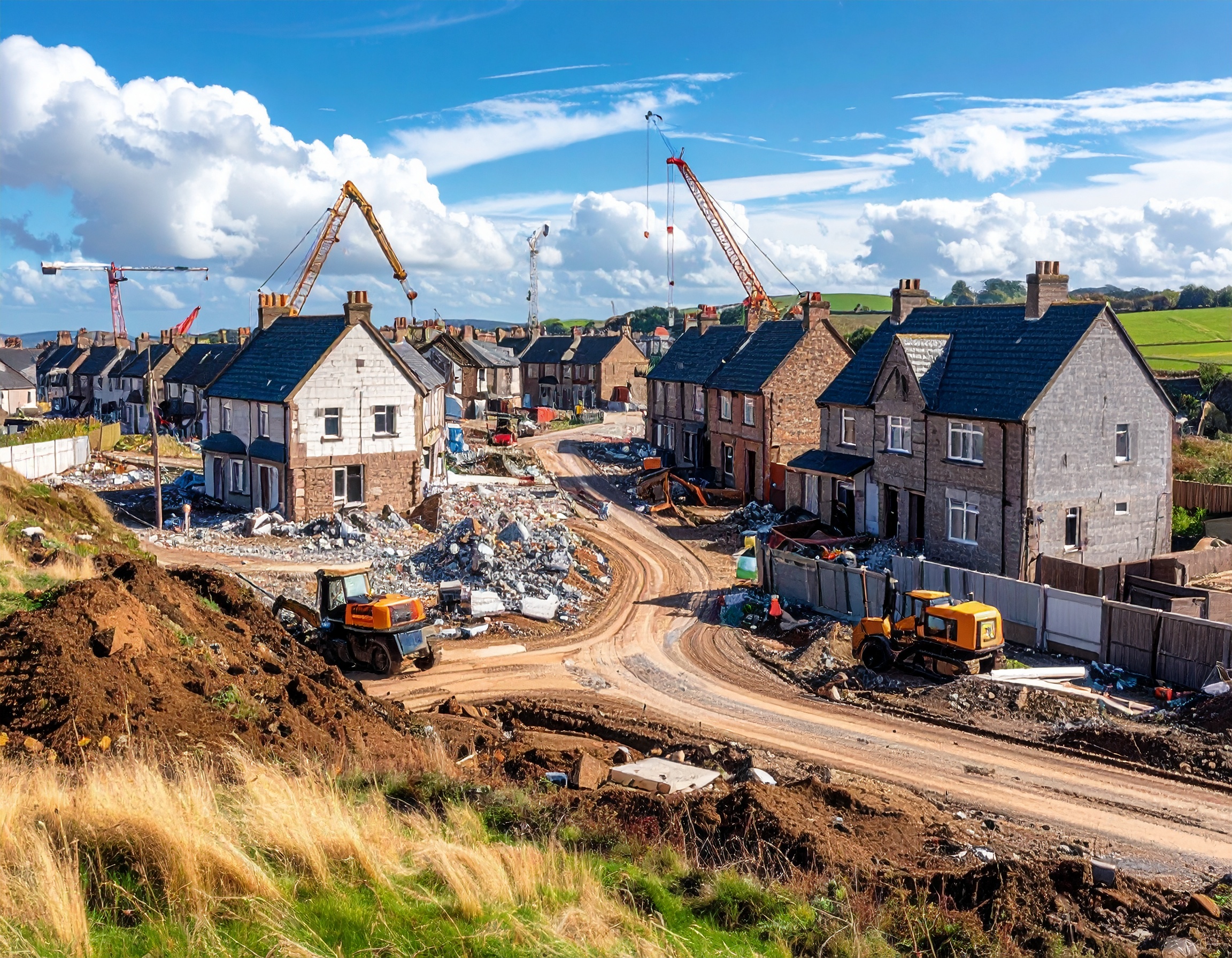UK House Price Growth Slows as Buyers Show Caution Ahead of Autumn Budget

The latest Halifax House Price Index reveals that UK house price growth has slowed sharply, as prospective buyers adopt a more cautious stance ahead of the upcoming Autumn Budget.
According to Halifax, average UK house prices rose by just 1.3% in the year to September, the weakest annual increase since April 2024. The figure fell short of a Reuters poll of economists, which had predicted a stronger 2.2% rise, signalling growing restraint in the UK property market as uncertainty builds around government housing policy.
The cost of a typical UK home fell by 0.3% in September, reversing August’s modest 0.2% increase. This translates to a decline of £794, bringing the average property value down to £298,184.
First-time buyers saw a modest uplift, with the average starter home priced at £236,811, up 1.7% year-on-year. Regional variations persist, with more affordable pockets emerging outside the South East and London.
“While affordability remains a challenge, a relatively lower mortgage rate environment and steady wage growth have helped support buyer confidence,” said Amanda Bryden, Head of Mortgages at Halifax, part of Lloyds Banking Group.
“Although the broader economic outlook remains uncertain, we expect modest house price growth to continue through the remainder of the year as affordability gradually improves.”
Market sentiment remains cautious, with analysts noting a slowdown in buyer enthusiasm. Sarah Coles, Head of Personal Finance at Hargreaves Lansdown, commented:
“Buyer enthusiasm subsided again in September, bringing prices down slightly from August’s high. This isn’t a market in freefall, but one that’s moving sideways. Mortgage rates remain stable, with the average two-year fixed deal below 5% and five-year rates only fractionally higher.”
The Bank of England held interest rates steady at 4% last month, following five consecutive rate cuts since summer 2024. Governor Andrew Bailey urged continued caution amid persistent inflation, which stood at 3.8% in August, almost double the central bank’s 2% target.
Political and fiscal uncertainty are also weighing on the market. Chancellor Rachel Reeves is due to deliver her first Autumn Budget on 26 November, one month later than last year. Reports suggest the Treasury is exploring reforms to stamp duty, potentially replacing it with a new levy on homes valued above £500,000.
Industry leaders have voiced concern about the effect of the delay. Taylor Wimpey, one of Britain’s largest housebuilders, recently noted that the “postponement of the UK budget has impacted short-term customer confidence.”
Similarly, Guy Gittins, Chief Executive of Foxtons, said:
“Market momentum remains steady, which is encouraging. However, both buyers and sellers are exercising caution ahead of November’s budget.”
A separate survey by Nationwide Building Society painted a slightly more positive picture, showing a 0.5% monthly rise in house prices for September and pointing to “broad stability” across the housing market.

